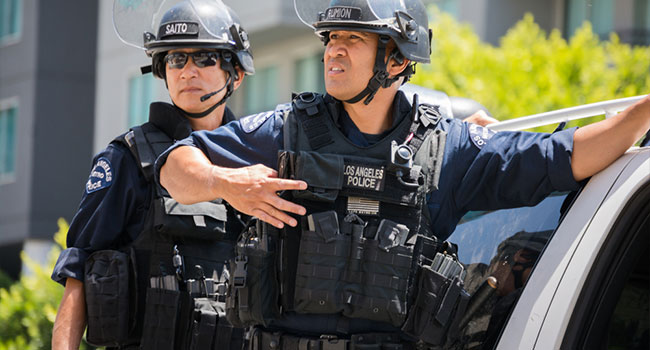
California Becomes Third State to Ban Facial Recognition Software in Police Body Cameras
The measure, which will last until at least 2023, does not ban police from using facial recognition in other types of cameras.
- By Haley Samsel
- Oct 10, 2019
California will become the third state in the U.S. to ban facial recognition technology in police body cameras after Gov. Gavin Newsom, a Democrat, signed a measure into law on Tuesday.
AB1215, which will go into effect on Jan. 1, bans biometric surveillance technology in body cameras as well as taking body camera footage and running it through facial recognition software later. However, police are not banned from using the technology on other cameras, and federal law enforcement could potentially use the software while operating in California.
Originally passed in September, the California law echoes efforts across the country to prevent law enforcement from using facial recognition in their investigations. Oregon and New Hampshire already have laws in place banning police from using it in body cameras, and cities like San Francisco and Oakland have forbidden it altogether.
No police agencies in California currently use facial recognition right now, according to the California Peace Officers’ Association. State Rep. Phil Ting, who led the effort to ban the technology alongside other criminal justice legislation, said the law was intended to prevent California from becoming a “police state.”
"We wanted to introduce legislation before it became a major issue,” Ting told reporters in September. “This is not just a California concern, this is a national concern, people have really … been much more sensitive to their privacy recently.”
In August, Ting and 25 other California lawmakers were misidentified by facial recognition software as criminals in a law enforcement database, according to a study published by the ACLU of California. Other research has found that the software is less accurate when it comes to correctly identifying women and people of color.
As lawmakers consider policies that would ban facial recognition in other areas, including federal public housing, law enforcement groups and security companies are urging caution in implementing bans on the software. Late last month, a group of 39 police groups and tech organizations sent an open letter to Congress calling for regulation over outright bans.
“While we agree that it is important to have effective oversight and accountability of these tools to uphold and protect civil liberties, we disagree that a ban is the best option to move forward,” the letter reads. “Bans would keep this important tool out of the hands of law enforcement officers, making it harder for them to do their jobs efficiently, stay safe, and protect our communities.”
The California ban will last until at least 2023, when the measure expires and legislators will decide whether or not to renew it.
About the Author
Haley Samsel is an Associate Content Editor for the Infrastructure Solutions Group at 1105 Media.